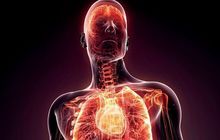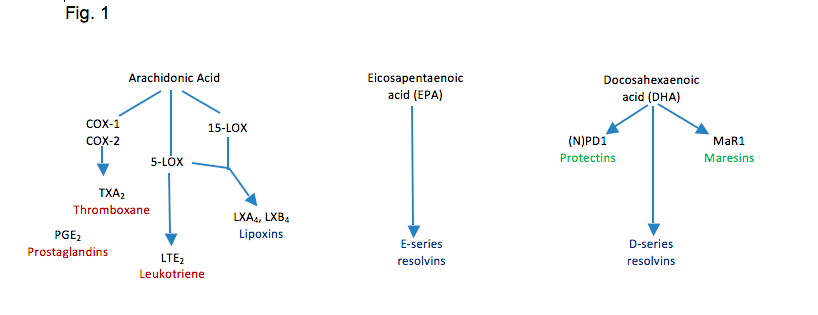
Inflammation is an essential biological process that helps protect us against foreign organisms, tissue injury, or other insults. While inflammation is often considered a bad thing, the reality is that it is an essential process. When inflammation occurs, chemicals from our blood cells are released into the bloodstream or affected tissues, which triggers an inflammatory/ immune response designed to fight the invading organism and heal tissue damage.
When the process is working correctly, this inflammatory process is short-lived resulting in eventual inflammatory resolution. Unfortunately, chronic lingering inflammation is associated with several diseases including most mental health conditions such as depression, bipolar disorder, anxiety disorders, and schizophrenia.
It was once believed that inflammation resolution was a passive process that simply occurred over time. However, we now know that inflammatory resolution is a complex and highly active process. This process involves specialized pro-resolving mediators, or SPMs. As shown in the figure below, SPMs such as lipoxins, resolvins, protectins, and maresins are derived from arachidonic acid (AA) and omega-3 fatty acids [1].

Unlike anti-inflammatory medications, SPMs do not block the initial inflammation phase but instead down-regulate the process to resolve inflammation. They signal the immune system to stop actively responding to pro-inflammatory signals by clearing away the damaging by-products of inflammation. They also have a role in tissue remodelling.
As SPMs are derived from AA and omega-3 fatty acids, it is important that we consume foods that are high in these nutrients. In particular, omega-3 fatty acids from fish oil is an important source. As a result, the anti-inflammatory properties of omega-3s are likely partly due to their influence on SPM production.
Unless you are vegan, most of us are already likely consuming enough AA which is derived from chicken, eggs, beef, and processed meats.
Unfortunately, the conversion of omega-3s and AA into SPMs can be inefficient for some people, leading to a reduced ability to resolve inflammation. Genetic variations may influence a person’s ability to produce SPMs. In addition, ageing, obesity, pain-related conditions, and chronic stress can impact on a person’s ability to produce SPMs. While research is still in its infancy, SPM production may also be impaired in people with depression and other mental health problems [2,3]. As mood disorders are associated with chronic inflammation, it is possible that this may be partly due to a reduced ability to produce SPMs and therefore resolve inflammation. Interestingly, SPMs have been shown to reduce brain inflammation [4].
One way to increase SPMs is to increase the intake of omega-3 fatty acids. In particular, fish oil supplementation may be helpful. However, if someone has a reduced ability to convert omega-3 fatty acids into SPMs, an additional option is to take SPMs directly. SPMs have recently been introduced into Australia by Metagenics and present as a promising option to resolve inflammation and improve mood and mental health in people with mental health disorders. While there are no human studies yet examining the effects of SPMs on mental health, there are a couple of promising animal studies [5,6].
As SPMs are considered a safe way to turn down inflammation, supplementation may be worth trialling in people with depression and other mental health disorders that have not benefited from fish oil supplementation or other anti-inflammatory ingredients such as curcumin and saffron. People with obesity, under high stress, or have a pain-related condition may also benefit.
Obviously, identifying and removing the drivers of inflammation is the key to overall success. However, SPMs present as a promising option that requires investigation in well-controlled clinical studies.
Session expired
Please log in again. The login page will open in a new tab. After logging in you can close it and return to this page.